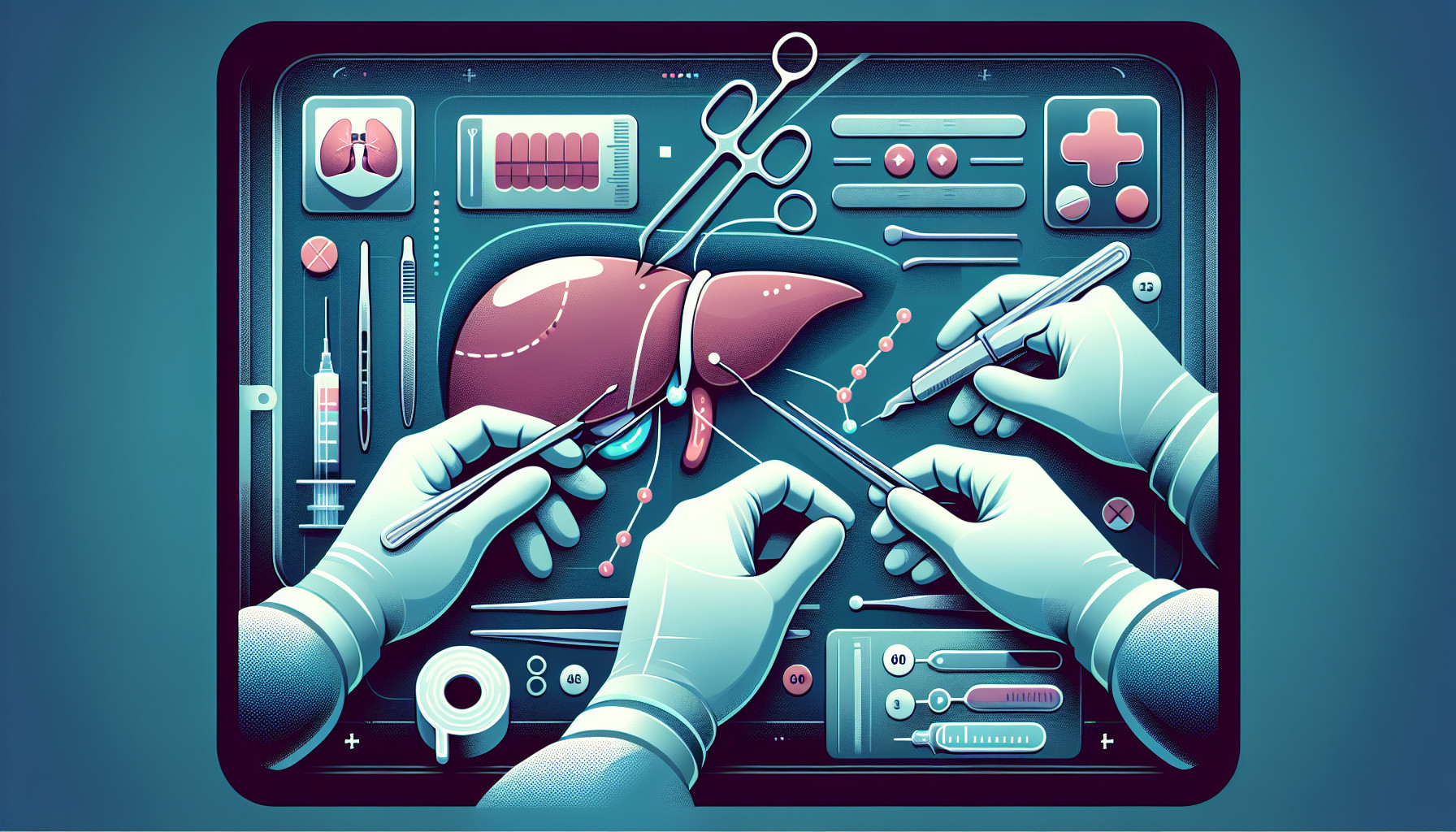Our Summary
The liver biopsy is a key testing method used to diagnose liver diseases. A specific type of liver biopsy, called the Transjugular Liver Biopsy (TJLB), can be safely used for patients with severe blood clotting issues and/or fluid buildup in the abdomen due to liver disease. However, in China, there currently isn’t a specific set of guidelines or standard procedures for performing TJLB, which includes the collection and processing of tissue samples. To address this, the Chinese Society of Hepatology of the Chinese Medical Association has invited experts to create a consensus on how to properly perform TJLB. This includes determining when it should be used, when it shouldn’t be used, how to carry out the procedure, and how to collect and handle the tissue samples. The goal is to ensure that TJLB is used in a more consistent and appropriate manner in the clinical setting.
FAQs
- What is a Transjugular liver biopsy (TJLB) and who can safely use it?
- What is the purpose of the consensus compiled by the Chinese Society of Hepatology of the Chinese Medical Association regarding TJLB?
- Why is there currently no TJLB-specific procedure guidance, standard process for pathological sampling and tissue specimen processing in China?
Doctor’s Tip
A doctor may advise a patient undergoing a liver biopsy to follow these tips:
Follow all pre-biopsy instructions provided by the healthcare provider, including fasting before the procedure.
Inform the healthcare provider about any medications, allergies, or medical conditions before the biopsy.
Stay calm and relaxed during the procedure to minimize discomfort and reduce the risk of complications.
After the biopsy, follow all post-procedure instructions provided by the healthcare provider, including avoiding strenuous activities and monitoring for any signs of infection or complications.
Contact the healthcare provider immediately if there is excessive bleeding, severe pain, fever, or any other concerning symptoms after the biopsy.
Suitable For
Liver biopsy is recommended for patients with suspected liver disease or abnormal liver function tests, such as:
- Patients with unexplained liver enzyme elevations
- Patients with suspected liver cirrhosis or fibrosis
- Patients with suspected liver tumors or masses
- Patients with suspected liver infections, such as hepatitis B or C
- Patients with autoimmune liver diseases, such as autoimmune hepatitis or primary biliary cholangitis
- Patients with metabolic liver diseases, such as fatty liver disease or hemochromatosis
- Patients undergoing evaluation for liver transplantation
It is important to consult with a hepatologist or liver specialist to determine if a liver biopsy is necessary and appropriate for the specific clinical situation.
Timeline
Before liver biopsy:
- Patient will undergo a physical examination and medical history review to determine the need for a liver biopsy.
- Blood tests will be performed to assess liver function, blood clotting ability, and overall health.
- The patient may be asked to stop taking certain medications that could interfere with the procedure.
- The patient will be informed about the risks and benefits of the liver biopsy procedure.
After liver biopsy:
- The patient will be monitored closely for several hours to check for any complications such as bleeding or infection.
- The patient may experience some pain or discomfort at the biopsy site, which can be managed with pain medication.
- Results of the liver biopsy will be analyzed by a pathologist and shared with the patient’s healthcare provider.
- The patient will follow up with their healthcare provider to discuss the biopsy results and determine the next steps in their treatment plan.
What to Ask Your Doctor
Some questions a patient should ask their doctor about liver biopsy may include:
- What are the reasons for recommending a liver biopsy in my case?
- What are the potential risks and complications associated with the procedure?
- How should I prepare for the liver biopsy, such as fasting or stopping certain medications?
- Will I be sedated during the procedure?
- How long will the procedure take and when can I expect to receive the results?
- What follow-up care or restrictions should I be aware of after the biopsy?
- Will I experience any pain or discomfort during or after the procedure?
- Are there any alternative diagnostic tests or procedures that could be considered instead of a liver biopsy?
- How will the tissue sample be analyzed and when will I receive the pathology report?
- Are there any specific factors in my medical history or current health condition that could affect the accuracy or safety of the liver biopsy?
Reference
Authors: Chinese Society of Hepatology, Chinese Medical Association. Journal: Zhonghua Gan Zang Bing Za Zhi. 2022 Nov 20;30(11):1144-1150. doi: 10.3760/cma.j.cn501113-20221027-00523. PMID: 36891688
